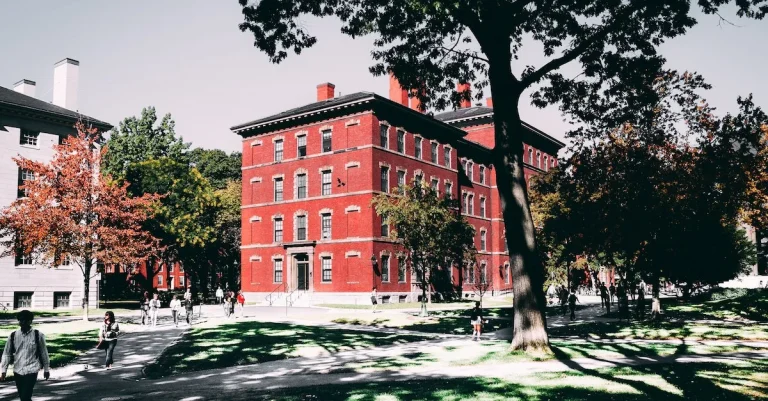Is Chicago Colder Than Boston? Breaking Down The Weather In Each City
If you’re considering a move to Chicago or Boston, one key factor is likely the climate and just how cold winters get in each city. So is Chicago colder than Boston overall?
If you’re short on time, here’s a quick answer to your question: Yes, Chicago tends to be colder than Boston in the winter months on average.
In this comprehensive guide, we’ll analyze weather data to compare Chicago vs Boston winters month-by-month. We’ll also look at key climate factors like snowfall, wind, and precipitation to help you decide which city may better match your preferences.
Climate Overview of Chicago and Boston
Brief climate profile of each city
Chicago and Boston, two major cities in the United States, both experience distinct climate patterns throughout the year. Chicago, located in the Midwest, has a humid continental climate, characterized by hot and humid summers, and cold and snowy winters.
Boston, on the other hand, falls under the humid subtropical climate zone, which means it has hot, muggy summers and cold, snowy winters.
In terms of average annual temperature, Chicago tends to be slightly cooler than Boston. The average high temperature in Chicago is around 60°F (15°C), while in Boston it is around 62°F (17°C). However, it’s important to note that both cities can experience extreme temperatures, with Chicago being known for its freezing winters and Boston occasionally facing heatwaves during the summer months.
Overview of seasonal weather patterns
Chicago experiences distinct seasons, with warm summers and cold winters. The summer months, from June to August, see average high temperatures ranging from 80°F (27°C) to 85°F (29°C). However, it’s not uncommon for temperatures to reach the 90s°F (30s°C) during heatwaves.
Winters in Chicago can be bitterly cold, with temperatures dropping below freezing. The city is known for its strong winds, which can make the temperatures feel even colder.
Boston also has four distinct seasons, with hot summers and cold winters. The summer months, from June to August, see average high temperatures ranging from 80°F (27°C) to 85°F (29°C). Similar to Chicago, Boston can experience heatwaves with temperatures reaching the 90s°F (30s°C).
Winters in Boston can be quite snowy, with average temperatures ranging from 28°F (-2°C) to 38°F (3°C).
Both cities have their own unique weather patterns and experiences. Chicago’s winters are known for their cold and snowy conditions, while Boston’s summers can be hot and humid. It’s important to consider these climate factors when planning a visit or considering a move to either city.
Comparing Average Temperatures (Month-by-Month)
December through March temperature comparison
When it comes to the winter months, both Chicago and Boston experience chilly temperatures. However, Chicago tends to be colder than Boston during this time. In December, the average temperature in Chicago is around 32°F (0°C), while Boston sees an average temperature of 37°F (3°C).
Moving into January, Chicago’s average temperature drops to around 29°F (-2°C), whereas Boston’s average temperature remains slightly higher at 33°F (1°C).
February is often the coldest month in both cities, with Chicago seeing an average temperature of 27°F (-3°C) and Boston at 31°F (-1°C). The trend continues into March, with Chicago averaging around 36°F (2°C) and Boston reaching an average temperature of 40°F (4°C).
Temperature extremes – all-time records
Although Chicago is generally colder than Boston during the winter months, both cities have experienced extreme temperature fluctuations throughout their history. In terms of all-time low temperatures, Chicago recorded a bone-chilling -27°F (-33°C) on January 20, 1985.
On the other hand, Boston reached a record low of -18°F (-28°C) on February 9, 1934.
When it comes to all-time high temperatures, Chicago holds the record with a scorching 105°F (41°C) on July 24, 1934. Boston’s highest recorded temperature is 104°F (40°C), which occurred on both July 4, 1911, and July 3, 1911.
It’s important to note that these temperature comparisons are based on historical data and can vary from year to year. Weather patterns and other factors can influence the actual temperatures experienced in each city.
For more detailed and up-to-date weather information, you can visit websites like www.weather.com or www.accuweather.com which provide comprehensive weather forecasts and historical data for both Chicago and Boston.
Precipitation, Snowfall, and Other Key Factors
Rain and snowfall norms
When comparing the weather in Chicago and Boston, it is important to consider the precipitation and snowfall patterns in each city. Both cities experience rainfall throughout the year, but their annual averages differ.
According to www.weather.com, Chicago receives an average of 36 inches of rainfall annually, while Boston receives around 42 inches. However, when it comes to snowfall, Boston tends to see more snow than Chicago.
On average, Boston receives around 48 inches of snowfall per year, compared to Chicago’s average of 36 inches. These differences in precipitation and snowfall can have a significant impact on the overall climate of each city.
Wind chill and lake effect snow
One factor that sets Chicago apart from Boston is the influence of wind chill and lake effect snow. Due to its proximity to Lake Michigan, Chicago experiences strong winds that can make the temperature feel much colder than it actually is.
This phenomenon, known as wind chill, can lead to bitterly cold winters in the city. Additionally, the lake effect snow can result in heavier snowfall near the lakefront areas of Chicago. On the other hand, Boston does not have a large body of water nearby that would produce a similar effect.
Therefore, while both cities can be cold during the winter months, Chicago often experiences more extreme wind chill and lake effect snow compared to Boston.
Sunny vs. cloudy days
Another factor to consider when comparing the weather in Chicago and Boston is the number of sunny versus cloudy days. Chicago is known for its windy and cloudy weather, especially during the winter months.
On average, the city experiences around 189 sunny days per year, with the majority of them occurring in the summer. In contrast, Boston has slightly more sunny days, with an average of 201 per year. This difference in sunshine can affect the overall mood and perception of the weather in each city.
While Chicago may have colder temperatures, Boston residents may feel more optimistic due to the slightly higher number of sunny days throughout the year.
Conclusion
While both Chicago and Boston can experience harsh winter conditions, data shows Chicago tends to be colder overall, especially December through February.
Looking at all factors like snow, wind, and overcast days can help you determine which climate aligns better with your preferences if considering a move.








